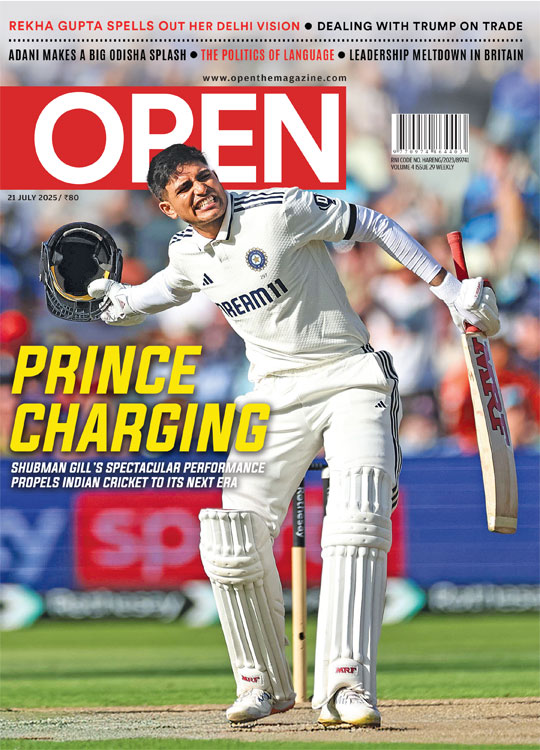The Art of Borrowing
Vijay Mallya did it and so can you—with some help from bankers and a motley bunch of conspirators in suits
 Anil Bhatia
Anil Bhatia
 Anil Bhatia
|
18 Dec, 2011
Anil Bhatia
|
18 Dec, 2011
/wp-content/uploads/2015/11/borrowing.jpg)
Vijay Mallya did it and so can you—with some help from bankers and a motley bunch of conspirators in suits
There were many indignant protests by well-meaning citizens when India’s Prime Minister and Aviation Minister made some noises that the Government would look at bailing out Kingfisher Airlines. Coming so soon after a debate on the Poverty Line that the Planning Commission got caught in, people were disgusted to hear that some of New Delhi’s power elite thought Rs 32 per day made you rich enough not to need any dole, while others thought that high-flying industrialists who owned airlines were poor enough to need it. Capitalism for the poor and Socialism for the rich!
People made much of Vijay Mallya’s garish and loud lifestyle, his ownership of villas, yachts, cricket and F1 teams. Why on earth should such a man’s floundering business be rescued with taxpayers’ funds? Why indeed?
Perfectly decent folks have asked this question. Bailing out Kingfisher, they think, means bailing out Vijay Mallya. This naivete is almost touching.
Let us, for a moment, say that the Government decides not to extend a lifeline to Kingfisher, and lets it crash-land—that is, lets the company declare bankruptcy. The Canadian equities research firm Veritas actually went public with a report some months ago that stated that Kingfisher was already insolvent and could not carry on as a ‘going concern’.
If the airline goes bankrupt, Mallya stands to lose whatever he has invested. First, in starting the airline, then in buying out Deccan, and even in the subsequent rights issue of shares that he subscribed to. These investments may have had historical monetary value, but the world of finance operates on the basis of ‘present value’. Today, the airline’s market capitalisation—share price multiplied by all shares in existence—is about Rs 1,250 crore. Its promoters hold 58.6 per cent of its ownership. So, if it shuts down, Mallya stands to lose Rs 730 crore, the value of his stake in the business.
Let’s look at who else would lose:
» First, commercial banks, led by State Bank of India—which, by a rather stupid decision earlier this year of converting a large part of their outstanding loans into shares, together hold 23 per cent of Kingfisher—would lose Rs 291 crore as shareholders.
» Second, commercial banks, led by SBI. Again. They remain the airline’s bankers. Last counted, the airline had loans to the tune of Rs 7,000 crore (and growing) to pay off. Also, as interest mounts on the principal each passing day, potential losses get bigger still. By the time Kingfisher formally goes bust, debt of some Rs 8,000 crore would likely need to be written off. Since it doesn’t own too many aircraft (most are on lease), there isn’t much by way of assets for banks to seize.
» Third, State-run oil companies such as Indian Oil, BPCL and HPCL that supply aviation turbine fuel to the airline on credit. Kingfisher reportedly owes them roughly Rs 1,000 crore.
» Fourth, the Airports Authority of India and its joint ventures with private firms in Mumbai and Delhi. Kingfisher owes them about Rs 250 crore, as per newspaper reports.
» Fifth, the Taxman and others. Various tax-deduction-at-source and provident fund dues of employees that were never paid to the authorities would be lost—about Rs 422 crore, by one estimate. Kingfisher reportedly owes the Centre Rs 110 crore in service tax as well.
» Sixth, customers who have booked and paid for tickets in advance, and may not be able to fly. Counting just a third of Kingfisher’s advance-booked passengers, that would amount to Rs 2,000 crore at any given moment.
» And finally, its 7,000 odd employees. Apart from being rendered jobless, they would suffer in other ways too. Their PF has already gone missing, and would stand to lose gratuity and other benefits.
No matter how you look at it, it would be an ugly sight. But if you add up the numbers, it’s clear that for every rupee that Mallya loses in case his airline folds up, taxpayers lose Rs 14.
We are not privy to what the man must be saying in his meetings with government officials, but it must be to the effect—‘If you want to let Kingfisher sink, go ahead; but remember you go down fourteen times deeper.’ As they say in the world of high finance, if you owe your bank a hundred dollars, it’s your problem; but if you owe your bank a hundred million, it’s your bank’s problem.
This is just one example of the many ways businessmen leverage their one rupee to borrow and get extended credit for amounts that can be five, ten or—in the case of the wily Mr Mallya—even fourteen rupees. It’s all about how you structure your business financially.
Borrowing money to set up a business is one of the founding principles of Capitalism. Nothing wrong with that, one may say, as long as the borrower is able to pay the interest regularly and return the principal. Of course, there are Ponzi schemes that frequently pop up in various parts of the world from time to time. Named after an enterprising businessman in the US, this refers to a sport in which you borrow from one, and then borrow from another to repay the first, and borrow from a third to repay the second, and so on. The game, on paper, can continue endlessly. But, to the chagrin of its perpetrators, the game is up once more than one lender shows up. Encyclopedias describe it as a ‘pyramid scam’ by which early investors are paid out of funds put in by later investors, who are often far more numerous, lured as they are by the ‘returns’ made by early investors.
India too gets its share of Ponzi schemes at regular intervals. While most scams of this sort are perpetrated by oversmart alecs with village buffoons as their victims, there have been instances of high-society types getting swindled as well. But by and large, these ‘schemes’ are so crazy that it leaves the rest wondering why on earth anyone would fall for them.
However, not every such scam is obvious to the undiscerning observer. In fact, if you look closely, the term could apply to some of our grand infrastructure projects—especially ‘public-private’ partnerships—that are often touted as the best thing to have happened to civilisation since Ancient Romans learnt to pave their highways.
Picture yourself as a smart alec from one of India’s many fast-growing states—Andhra, Gujarat, and now even Bihar—who happens to run a small family business and is an old pal of the local Mantriji. With suitable inputs from his ministry’s babu, Mantriji floats a scheme to put up a large power generation project, say, worth a hefty Rs 2,000 crore.
You summon a huddle of the large extended undivided family, and count your blessings, cash piles and bank accounts. Let’s say you have only Rs 100 crore. That elder who you think has been going senile scoffs and mumbles something to the effect of boys these days wanting to set up projects 20 times larger than the collective family wealth. You sigh deeply and buy him a ticket to Haridwar, Kashi, Chitrakoot or wherever. From here on, he can run the family charitable trust and generate goodwill.
The Rs 2,000 crore power project is of national importance, being of strategic value to the country’s growth, so the government has sanctioned a 12 per cent ‘guaranteed return’. This bait is to be used to get banks in. At high leverage. This implies that instead of the prudent 2:1 debt-to-equity ratio, you can stretch it to 3:1. In simple English, that means for every rupee that you put in, the bank will give you a loan of Rs 3. If you put in Rs 500 crore, banks will release Rs 1,500 crore.
Now, in a company with Rs 500 crore of equity capital, promoters need to have only a little more than Rs 250 crore worth of shares to have a controlling stake of just over 50 per cent. The rest can be dispersed among a million investors. But then, that doesn’t solve your problem. All you have is Rs 100 crore. You are Rs 150 crore short. What do you do?
You appoint a Merchant Banker—guys in suits who help you raise money from capital markets. They make you incorporate a new company with Rs 100 crore in capital, its 100 million shares (of Rs 10 face value each) owned entirely by you and your family. After that, riding on the wonderful project you have bagged, they help you launch an Initial Public Offer (IPO).
You offer the public another 100 million shares at Rs 40 each, a premium of Rs 30. So what if the project has not even acquired land, leave alone plant and machinery, forget generating even a single megawatt of power? The Merchant Banker’s PR division plants helpful stories in the press extolling the virtues of the project and its promoters. Helpful stockbrokers circulate stories of the grey market premium that the yet-to-be-sold shares command. Your IPO is ‘oversubscribed’ thanks to the Standard Tricks Department of the Merchant Banker, and the shares debut on the stockmarket at Rs 50, trading at Rs 10 more than the issue price of Rs 40. The net worth of your company is now Rs 500 crore: Rs 200 crore paid-up capital (half of it yours) and Rs 300 crore in the share premium account. And you still own half the business.
To meet their lending targets (and keep Mantriji happy), the banks promptly sanction Rs 1,500 crore in loans. Mantriji, a coalition partner in the state government by virtue of his three seats in the Assembly, provides support to the Chief Minister, whose party survives on a one-vote majority. Of your 50 per cent ownership, he has been given a secret 10 per cent stake. Of course, he does not own it directly but through two other local businessmen—one, a former property dealer, now a real estate company, and the other, a former tent-tamboo trader, now also a real estate company.
With Rs 2,000 crore in your kitty, you now set off to distant shores to buy power equipment. Your travels take you to Old Europe, to the not-so-old US, and finally to New China, where you settle on state-of-the-art technology for Rs 1,000 crore. Next, your travels take you to Dubai, Singapore and finally Mauritius. Here, your Merchant Bank helps you set up a company that buys this equipment for Rs 1,000 crore from your Chinese suppliers, and then sells it, in turn, to your Indian market-listed power company for Rs 1,500 crore. Thus, your Rs 100 crore investment has already generated Rs 500 crore for you in a tax haven. Satisfied, you return to India with the peace of an ascetic and spirit of a man who has travelled the world to see India succeed.
With the balance Rs 500 crore, you acquire land in a formerly ‘no-go area’ at throwaway prices from naïve tribals who are easily pleased with a third-rate hospital and worse school you set up for their upliftment (thus acquiring a do-gooder’s public image). In two years, the project is up and running. To guarantee 12 per cent returns on the Rs 2,000 crore project, the government buys electricity from you at a price that generates Rs 240 crore. You pay your banks Rs 150 crore in interest, and earn profits of Rs 90 crore on capital of Rs 200 crore. That is an earning-per-share of Rs 4.5, enough to keep your share price in a range of Rs 50-75 and your IPO investors happy.
The Rs 500 crore you ‘earned’ in Mauritius, though, has shrunk to Rs 250 crore because you had to pay off the Merchant Banker, Mantriji, his babu, the press, and a few jholawalas and sundry accomplices. But you are now the proud owner of a Rs 2,000 crore company in India, and have a neat Rs 250 crore in dollars overseas. You can now set up another infrastructure project. This time, your money enters the country as FDI from your Mauritius company.
Oh, we forgot to mention the ‘Business- man of the Year’ award that a business TV channel will give you this year. And the Bharat Sammaan to be awarded by a Hindi TV channel. It’s only a small dent in your overseas bank account. You deserve every bit of it, of course, for having brought so much investment into the country, setting up critical infra projects, putting up schools and hospitals. And those dumb Americans call such path-breaking projects Ponzi schemes!

/wp-content/uploads/2025/07/Cover-Shubman-Gill-1.jpg)











More Columns
‘Fuel to Air India plane was cut off before crash’ Open
Shubhanshu Shukla Return Date Set For July 14 Open
Rhythm Streets Aditya Mani Jha